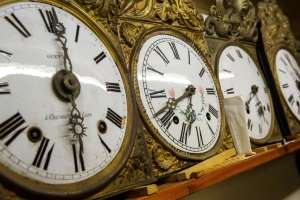Before you head to bed on Saturday night, you should remember to move your clocks forward, as Daylight Saving Time (DST) begins.
Though you may feel a bit groggier on Sunday after losing that hour of sleep, at least you’ll know that you’re gaining an hour more of daylight. It also serves as a reminder that spring — and the longer days of summer — are around the corner.
Some have recently called for an end to DST, citing how it can cause sleep disruption and really serves no purpose.
Though it was originally proposed as a way of conserving energy a 2008 study in the U.S. showed that it may not necessarily be the case, finding there is a “tradeoff between reducing demand for lighting and increasing demand for heating and cooling.”






